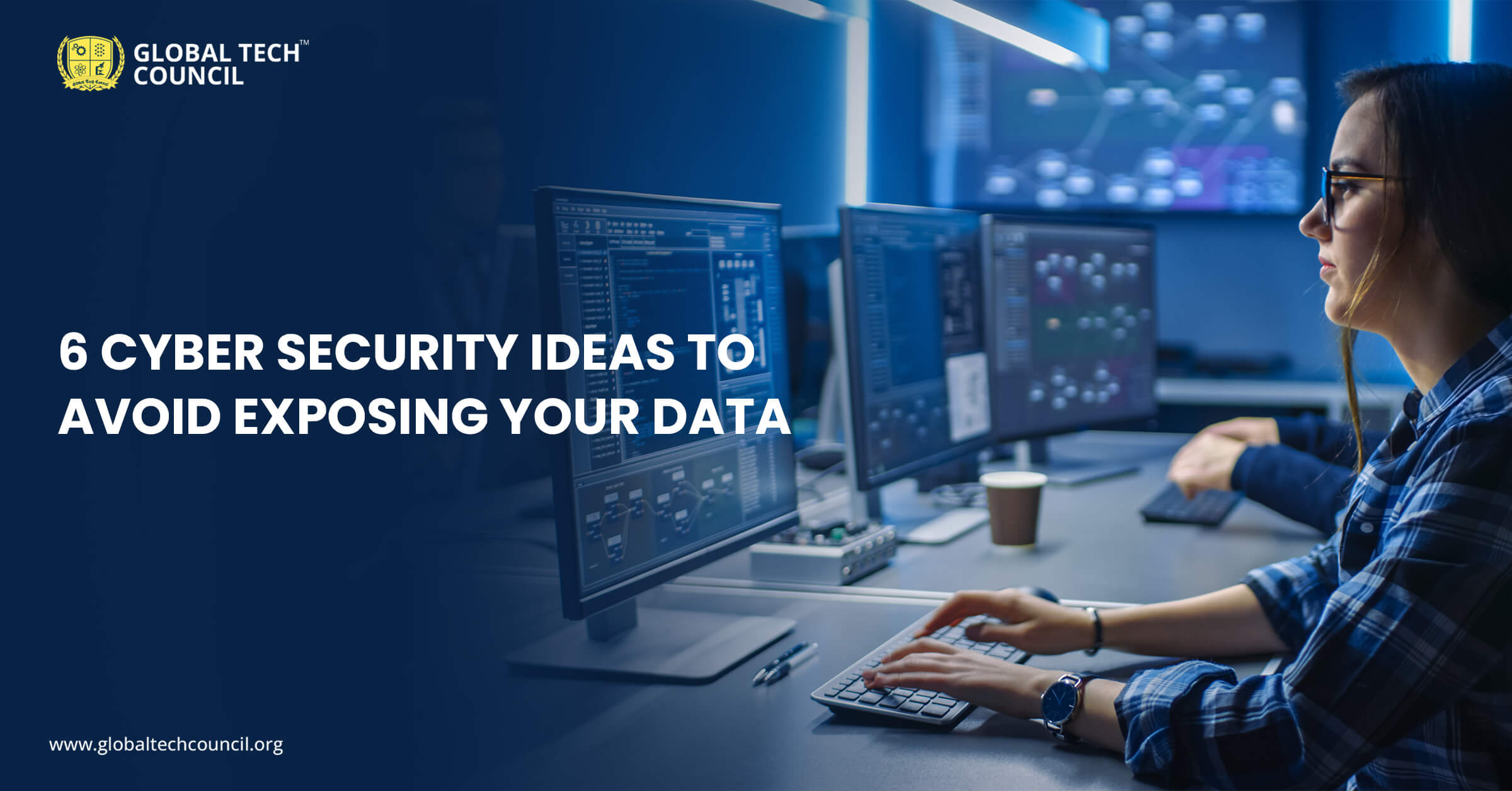
You have so much personal information on your electronic devices, visiting insecure websites and activating settings might put you at risk of a cyber-attack.
Forbes Technology Council leaders recently gave the following advice on what to be aware of and what to modify. To improve your cyber security training certification and secure your data both online and offline:
Tips to Avoid Exposing your Data
I had to develop severe internal rules and take several precautions. To avoid assaults and maintain my organization’s preparation for future threats as a company that has based its service on ensuring security. In this piece, I’ll share my experience and provide a list of fundamental security measures. That your firm should follow to ensure the greatest possible defense against cyber attacks.
Make cyber security a top concern and devise a plan
Protecting your company from cyber dangers must begin with the realisation that you, like everyone else, might be a victim of a cyberattack. In today’s environment, when cyberattacks propagate at an alarmingly quick rate. Downplaying the likelihood of an attack by stating “it won’t happen to me” is just not the proper mindset. As a result, you must take cyber security seriously and make it a top priority inside your company.
You must create a security plan by gaining access to and classifying the data you manage. As well as evaluating the level of protection required to safeguard it. Making sure you have effective controls in place that are suitable for the level of sensitivity of your data is an important part of your plan. You should also keep an eye out for changes in the tech world, both in terms of new risks and new opportunities.
Encourage staff to be alert
Employee irresponsibility is the cyber security professional risk for firms, according to a new survey. The Cyber security engineer certification is still falling for phishing schemes, clicking on harmful links. That might infect your whole computer system, and unwittingly expose personal data when using a mobile device in public.
As a result, increasing awareness and employee cyber security training certification must be a crucial component of your security plan to guarantee. That your employees understand the necessity of data protection and cyber security engineer certification. This approach may be ensured by appointing an information security officer to provide cyber security training online to your employees. Educate them on the newest cyber security professional risks and best practises. In a recent piece, we discussed ways to raise your employees’ security and privacy awareness.
Passwords and authentication should be taken seriously
You’ve probably heard this warning a hundred times. Despite this, many individuals ignore it, which explains why most accounts are compromised due to a simple-to-create-and-remember password. You must update your passwords periodically in addition to utilising a password manager to establish secure and unique passwords for each of your accounts.
Never use the same password for more than one account, and never reuse an outdated password. You and your staff mustn’t write down passwords, save them in a text file, or save them in the cloud. Complement your password policy with a need for two-factor authentication when accessing services that contain sensitive corporate data.
Install and maintain an antivirus programme:
Antivirus software is intended to keep you safe from all types of dangerous malware (such as ransomware, Trojan horse programs, botnets). As a result, installing antivirus software and updating it regularly must become a habit. If your antivirus alerts you to a problem, take it carefully and follow the directions to get things back on track.
Always make a backup to avoid becoming a victim of ransomware
Criminals might use ransomware to encrypt your data and hold it hostage. Companies are the most common targets of these assaults because they are ready to pay a high price to have their data returned. Natural disasters, such as a fire or flood at your company, might potentially endanger your data. You should back up vital data regularly to protect your firm against ransomware and other attacks.
You may simply recover data and guarantee that your capacity to serve consumers is not harmed if you have backups. Keep in mind, though, that just because you’re utilising a cloud or another hosted service doesn’t imply your data is safe. To genuinely have your data safeguarded, you must explicitly contract for backup services.
Encrypt your files to protect their privacy and confidentiality
Encryption is the finest solution to secure your data’s privacy and secrecy thus far. There are several forms of encryption, but end-to-end encryption provides the maximum level of security for your sensitive data. End-to-end encryption encrypts your data before they leave your device and keeps them that way until they reach their intended receiver.
To open or distribute them, you hold the only key. The service provider you employ can never view your files unencrypted or your passwords in plain form. If you utilize a solution based on the zero-knowledge principle, such as Tresorit. No one can decipher the content of your files in the event of a breach. So you don’t have to worry about your private business documents being revealed.
Conclusion
Hackers are increasingly wanting information, as seen by the rising number of cyber security training courses and data breaches over the previous several years. Attacks have gotten more sophisticated as the threat landscape has developed, and hazards that were formerly deemed uncommon have begun to occur regularly.
Therefore, staying safe from cyberattacks is difficult. When thieves are always seeking new methods to disclose security flaws, it’s challenging to stay up.
This has made it vital for corporate executives to recognize that no firm or individual can be completely protected from a data breach and that companies must increasingly be aware of and prepared for new, narrowly focused dangers.